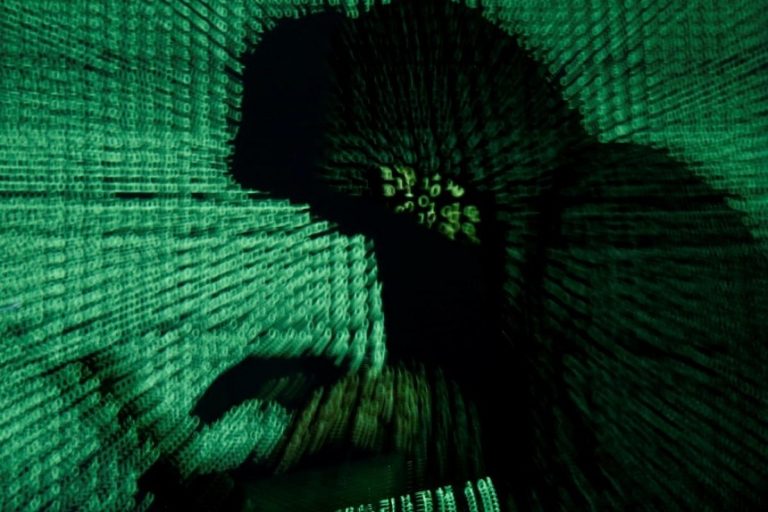
Similar Posts

SEOUL – South Korea has fined Facebook-parent Meta more than 21.6 billion won (S$20.6 million) for illegally collecting sensitive user information from nearly a million people without consent and sharing it with advertisers, the country’s data watchdog said Nov 5.
The firm, which also owns Instagram, ran afoul of laws prohibiting the use of information on political opinions, religious beliefs and people’s sex life unless the individual provides explicit consent, Seoul’s Personal Information Protection Commission added.
It added that the tech giant collected sensitive information from around 980,000 domestic users in South Korea through their Facebook profiles.
This included details about their religious beliefs and whether they are in a same-sex relationship.
The watchdog said it had confirmed that such information was provided to advertisers by Meta, with around 4,000 advertisers using it.
Meta “analysed user behaviour data, including pages liked and ads clicked on Facebook”, to create and implement targeted advertising related to “sensitive themes” such as transgender issues, homosexuality and North Korean defectors, officials said.
The commission said on Nov 5 it had decided to fine Meta 21.6 billion won.
It added that it “also ordered the company to establish legal grounds for processing sensitive information, implement safety measures, and respond diligently to users’ requests for access to their personal data”.
The decision is “significant in that they ensure that foreign operators providing global services must comply with the obligations set forth in (South Korea’s) Protection Act regarding the processing of sensitive information”. AFP

An Iranian hacking group is actively scouting U.S. election-related websites and American media outlets as election day nears, according to a new Microsoft blog published on Wednesday. Researchers say the activity suggests “preparations for more direct influence operations.”
The hackers – dubbed Cotton Sandstorm by Microsoft and linked to Iran’s Islamic Revolutionary Guard Corps – performed reconnaissance and limited probing of multiple “election-related websites” in several unnamed swing states, the report notes. In May, they also scanned an unidentified U.S. news outlet to understand its vulnerabilities.
“Cotton Sandstorm will increase its activity as the election nears given the group’s operational tempo and history of election interference,” researchers wrote. The development is particularly concerning because of the group’s past efforts.
Iran’s mission to the United Nations did not immediately respond to a request for comment. In recent past comments, they denied any involvement in 2024 election-related hacking activity.
In 2020, Cotton Sandstorm launched a different cyber-enabled influence operation shortly before the last presidential election. Posing as the right-wing “Proud Boys,” the hackers sent thousands of emails to Florida residents, threatening them to “vote for Trump or else!”.
The group also released a video on social media, purporting to come from hacktivists, where they showed them probing an election system. While that operation never affected individual voting systems, the goal was to cause chaos, confusion and doubt, senior U.S. officials said at the time.
Following the 2020 election, Cotton Sandstorm also ran a separate operation that encouraged violence against U.S. election officials who had denied claims of widespread voter fraud, Microsoft said.
The Office of the Director of National Intelligence, which is coordinating the federal effort to defend the election from foreign influence, did not immediately respond to a request for comment. REUTERS

WASHINGTON – A sophisticated breach of US telecommunications systems has extended to the presidential campaigns, raising questions about the group behind the attack and the extent of its efforts at collecting intelligence.
It was unclear what data was taken in the attack. The far-reaching operation has been linked to the Chinese government and attributed to a group experts call Salt Typhoon.
Investigators believe hackers took aim at a host of well-connected Americans, including the presidential candidates – reflecting the scope and potential severity of the hack.
Here’s what to know.
What is Salt Typhoon?
Salt Typhoon is the name Microsoft cybersecurity experts have given to a Chinese group suspected of using sophisticated techniques to hack into major systems – most recently, US telecommunication companies.
The moniker is based on Microsoft’s practice of naming hacking groups after types of weather – “typhoon” for hackers based in China, “sandstorm” for efforts by Iran and “blizzard” for operations mounted by Russia. A second term, in this case “salt,” is used to denote the type of hacking.
Experts say Salt Typhoon seems to be focused primarily on counterintelligence targets, unlike other hacking groups that may try to steal corporate data, money or other secrets.
What do US officials think Salt Typhoon has done?
National security officials have gathered evidence indicating the hackers were able to infiltrate major telecom companies, including but not limited to Verizon.
The New York Times reported on Oct 25 that among the phones targeted were devices used by former President Donald Trump and his running mate, Senator JD Vance of Ohio. The effort is believed to be part of a wide-ranging intelligence-collection effort that also took aim at Democrats, including staff members of both Vice President Kamala Harris’ campaign and Senator Chuck Schumer of New York, the majority leader.
How serious is this hacking?
National security officials are still scrambling to understand the severity of the breach, but they are greatly concerned if, as it appears, hackers linked to Chinese intelligence were able to access US cellphone and data networks. Such information can provide a wealth of useful intelligence to a foreign adversary like China.
To some degree, the breach represents a continuation of data collection on the types of targets that spies have been gathering for decades. In this instance, however, the sheer quantity and quality of the information Salt Typhoon may have gained access to could put the intrusion into its own category, and suggests that US data networks are more vulnerable than officials realised.
What did the hackers get?
At this stage, that is still unclear. One major concern among government officials is whether the group was able to observe any court-ordered investigative work, such as Foreign Intelligence Surveillance Act collection – a highly secretive part of American efforts to root out spies and terrorists.
No one has suggested yet that the hackers were able to essentially operate inside individual targets’ phones. The more immediate concern would be if they were able to see who was in contact with candidates and elected officials, and how often they spoke and for how long. That kind of information could help any intelligence agency understand who is close to senior decision-makers in the government.
People familiar with the investigation say it is not yet known if the hackers were able to gain access to that kind of information; investigators are reasonably confident that the perpetrators were focused on specific phone numbers associated with presidential campaigns, senior government leaders, their staff members and others.
Like the weather, hacking is never really over, and the Salt Typhoon breach may not be over either. It is also possible that the United States may never learn precisely what the hackers got. NYTIMES

WASHINGTON – Russian hackers are going after US government officials, defence workers and others in a new email phishing campaign targeting thousands of people, according to Microsoft Corp.
The hackers have sent “a series of highly targeted spearphishing emails” to thousands of people in more than 100 organisations since Oct 22, according to a blog post from Microsoft Threat Intelligence published on Oct 29.
The latest campaign will add to mounting concerns over US failures to outwit suspected Russian and Chinese hackers.
The FBI said on Oct 25 it is investigating unauthorised access by Chinese state-affiliated hackers targeting the commercial telecommunications sector.
In some of the emails that were part of the latest campaign, the senders impersonated Microsoft employees, according to the blog.
Spearphishing involves sending tailored emails to individuals, including links to malicious websites that can then steal information.
It wasn’t immediately clear how many of the attacks, if any, were successful.
Microsoft has said the attacks are perpetrated by a sophisticated Russian nation-state group it calls Midnight Blizzard, which US and UK governments have connected to the SVR, the Russian foreign intelligence service.
The company said in January that the group attacked its corporate systems, getting into a “small number” of email accounts, including senior leadership and employees who work in cybersecurity and legal.
In April, US federal agencies were ordered to analyse emails, reset compromised credentials and work to secure Microsoft accounts.
At the time, the Cybersecurity and Infrastructure Security Agency (Cisa) said the incident represented a “grave and unacceptable risk” to agencies, according to the April directive.
Cisa and US State Department didn’t immediately respond to requests for comment.
The Russian Embassy in Washington didn’t immediately respond to a request for comment. BLOOMBERG

HELSINKI/STOCKHOLM – The Finnish and German governments on Monday said an investigation was under way of a severed fibre optic communications cable running on the Baltic seabed and linking the two countries, and they cited concerns about the security of critical infrastructure.
The 1,200 km (745 miles) fibre optic cable running through the Baltic Sea from Helsinki, Finland’s capital, to the German port of Rostock may have been severed by an outside force, Finnish state-controlled cyber security and telecoms network company Cinia said.
The C-Lion1 cable malfunctioned just after 0200 GMT, the company said.
The Finnish and German foreign ministries said in a joint statement that they were “deeply concerned” by the severed cable and that a thorough investigation was underway.
“Our European security is not only under threat from Russia’s war of aggression against Ukraine, but also from hybrid warfare by malicious actors,” they said. “Safeguarding our shared critical infrastructure is vital to our security and the resilience of our societies.”
The sudden outage implied that the cable was completely severed by an outside force, although a physical inspection has not yet been conducted, Cinia’s chief executive, Ari-Jussi Knaapila, told a press conference.
The damage occurred near the southern tip of Sweden’s Oland island and could typically take between five and 15 days to repair, he added.
Cinia said it was working with authorities to investigate the incident.
Swedish public service broadcaster SVT reported that Swedish authorities were also investigating damage to a communications cable running between Lithuania and Sweden, close to the one that was severed.
“It is absolutely central that it is clarified why we currently have two cables in the Baltic Sea that are not working,” Carl-Oskar Bohlin, minister of civil defence, told SVT.
The Swedish government did not immediately reply to Reuters’ request for comment.
Last year a subsea gas pipeline and several telecoms cables running along the bottom of the Baltic Sea were severely damaged in an incident raising alarm bells in the region.
Finnish police investigating the 2023 case have named a Chinese container ship believed to have dragged its anchor as a prime suspect, but have not said whether the damage was believed to be accidental or intentional.
In 2022 the Nord Stream gas pipelines linking Russia to Germany in the Baltic Sea were destroyed by explosions in a case that remains under investigation by German authorities. REUTERS

SEOUL – Pro-Russia hacking groups have conducted cyberattacks against South Korea after North Korea dispatched troops to Russia to support its war against Ukraine, Seoul’s presidential office said on Friday.
The office held an emergency intra-agency meeting after detecting denial-of-service attacks on some government and private websites in recent days.
Some of the websites experienced temporary outages but there was no serious damage, it said, adding that the government will strengthen its ability to respond to such attacks.
“Cyber attacks by pro-Russian hacktivist groups on our country have occurred intermittently in the past, but have become more frequent since North Korea dispatched troops to Russia and participated in the Ukraine war,” the office said in a statement.
Seoul and Washington have said there are more than 10,000 North Korean soldiers in Russia, and U.S. officials and Ukraine’s defence minister said some of them have engaged in combat in Kursk, near the Ukraine border.
The new military cooperation between Pyongyang and Moscow has been condemned by South Korea, the United States and Western allies. Ukrainian President Volodymyr Zelenskiy said on Tuesday that the first battles between his country’s military and North Korean troops “open a new page in instability in the world.” REUTERS
